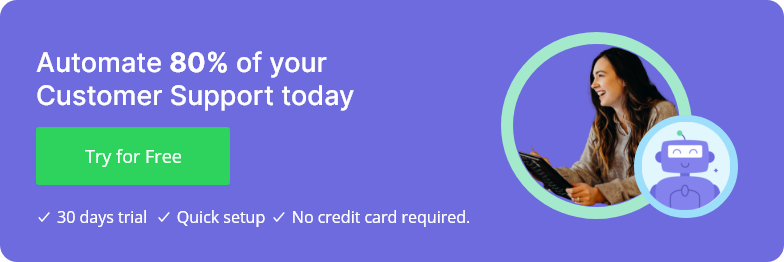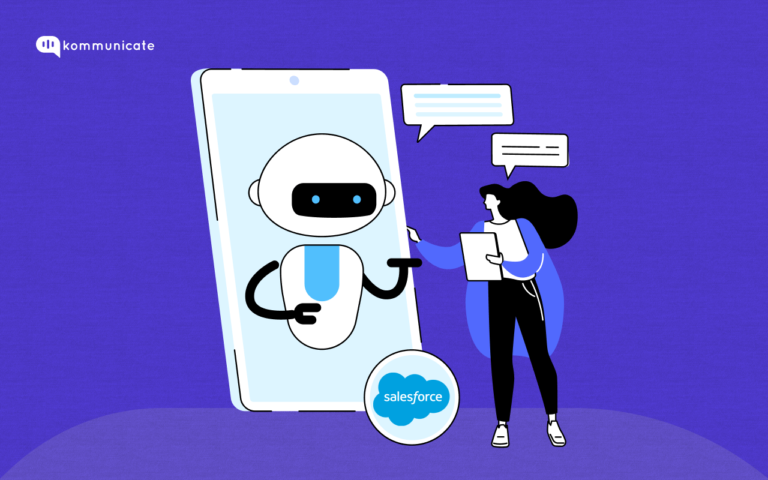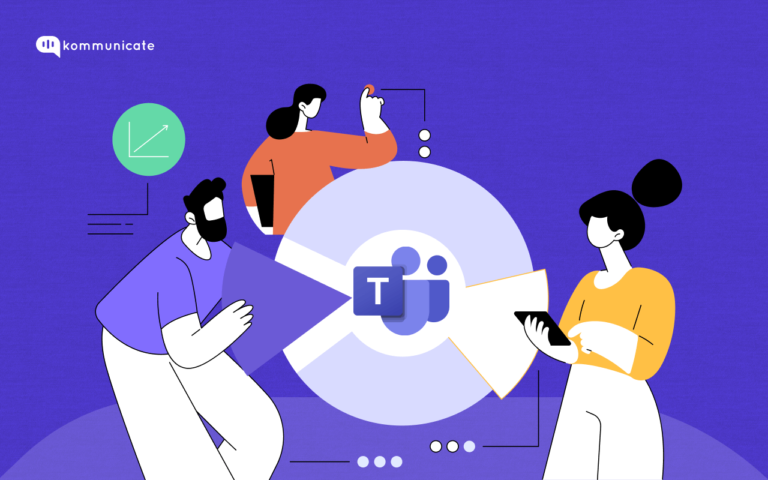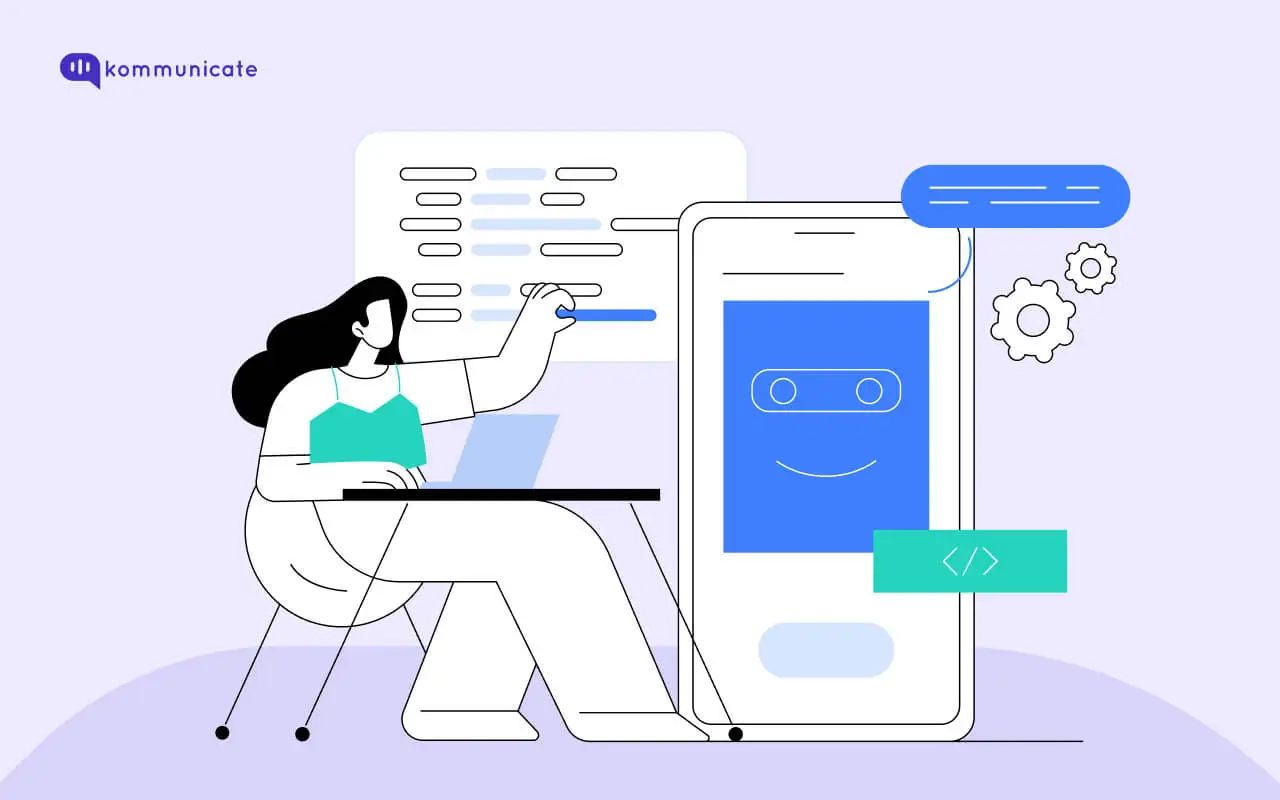Updated on January 17, 2024
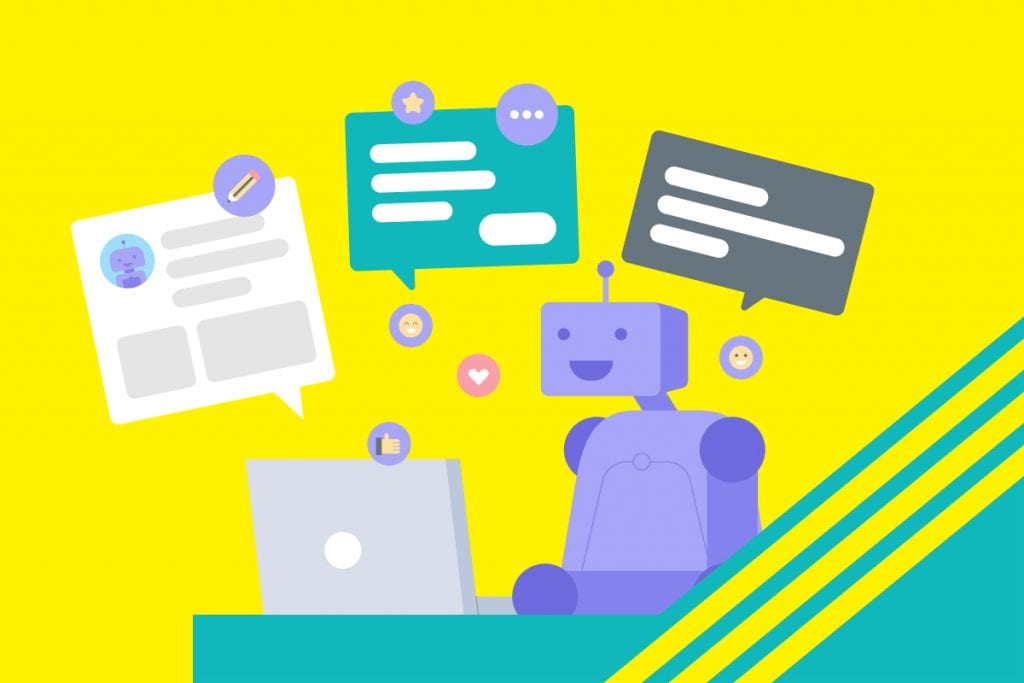
If your customer support team is overwhelmed by queries in this day and age, you don’t go out into the market and hire more customer support agents!!
You AUTOMATE!!
And chatbots are one such form of automation. Chatbots have been quite the rage in tech, especially since the rise of Large Language models such as ChatGPT.
So does your business need a chatbot? What exactly are the benefits of using chatbots?
We plan to answer all these questions, and much more, in this blog post.
We are going to talk about:
- Chatbot benefits businesses
- How can customers benefit from chatbots?
- Disadvantages of a chatbot
- Frequently Asked Questions

Chatbot benefits for businesses
Answering the most important question, why does your business need a chatbot solution?
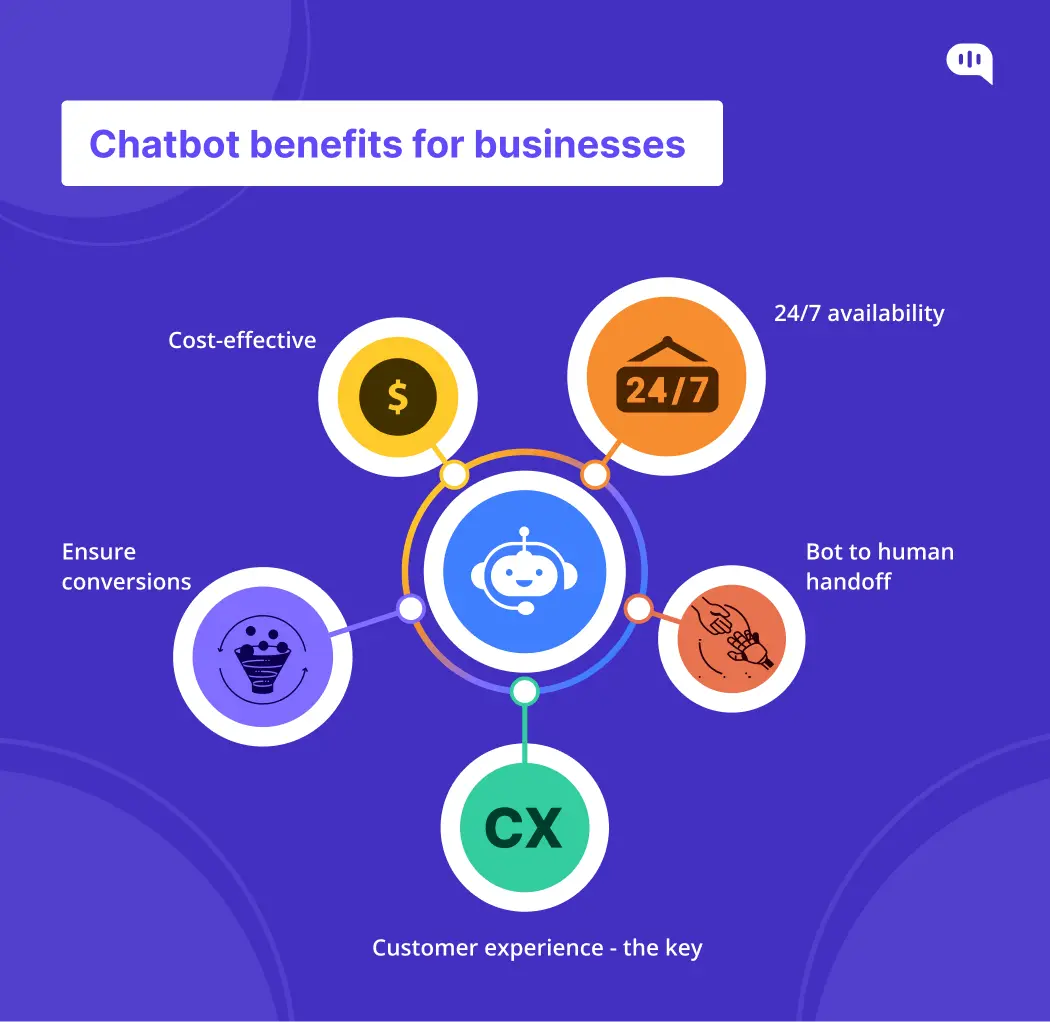
1. Chatbots make the business more cost-effective
One of the most important objectives of any business is to make profits, and one way to make profits is to cut down on expenses. Chatbots help you do this. Chatbots can help reduce the call volume that your business gets, by handling easier tasks such as order tracking and address updates. Reduced call volume = reduced agent workload = Fewer agents required to service the same number of customers.
2. 24/7 availability
The true sign of a global business is that they are available to their customers around the clock. Be it Beijing or Beirut, your customer support team should be able to address a support query in the least amount of time, and this is where a chatbot comes in. According to a study by Drift, 46% of consumers prefer interacting with a chatbot for their customer service needs. When your chatbot is available to your customers 24/7, it increases customer satisfaction and boosts brand loyalty. Thus chatbots don’t just help small businesses, they can even help enterprises to scale.
3. Boost conversions
When only 2-5% of your website visitors become paying customers, it means that a huge part of your marketing efforts is going to waste. Nudging action through conversation is the key here, and this is where chatbots come in. A good chatbot with a proactive question or suggestion can mean the difference between an average website and one that converts into a lot of leads.
4. Improves Customer experience
Running a business is walking a tightrope, one where you have to strike the right balance between building the best product or service there is and making sure the customer has the best experience while interacting with you. How do you ensure this monumental task in the digital realm? With a two-dimensional screen and content fighting for your user’s attention, a chatbot is the only solution to winning your customer’s attention. A chatbot ensures that your customer has a unique interaction with your website, improving customer service and driving personalized customer experience.
5. Bot to human handoff
Humans are needed for your business, and for your support function, and no one is saying that a chatbot will completely replace the need for human intervention. Chatbots can seamlessly transfer the queries a customer has to their human counterparts, making them valuable assistants. You can route the conversations so that when it is time for your customer support agents to take over, they can do so with ease.

Chatbot benefits for customers
The customer is the king, and you always make the king comfortable. Whether your customers want instant support or personalized guidance, you should always be providing them this proactively, so that they remain YOUR customers and not your competitors.
So how can customers benefit from your chatbots? Here are a few ways:
6. Instant responses
With a chatbot, you have instant access to information, and this invariably leads to a lot of time saved. It is like having a personal assistant who will answer your questions, no matter what time of the day or how many times you ask the same question. Faster turnaround times and time saved = happier customers.
7. Security of Data
Customers today are more concerned about their private data than ever before, thanks to the ever-growing realm of cybercrime. The average cost of a data breach reached a whopping $4.45 million, according to this report. When you build chatbots with data security on the top of your mind, you are opening the doors to a secure interaction. If your chatbot is HIPAA and SOC2-compliant, customers trust you with their data.
8. Multilingual support
Language should never be a barrier to effectively communicating with a business, and chatbots help break down this barrier. Chatbots help people from around the world to interact with your support agents effortlessly. Your business thus has a wider reach.
9. Self-service enhancement
Most of the customers today want to figure things out on their own, be it reading manuals or seeing videos to solve a particular problem. Chatbots are online all the time, and they are the perfect agents to help in this self-service movement. No more navigating complex menus or staying on hold until a support agent gets in touch with you.
10. Proactive engagement
Customers today don’t want to search a website looking for the right answers, but rather want to sit in the passenger seat as someone guides them to what they are looking for. Chatbots are the perfect solution to this problem. Chatbots can reach out to potential customers with offers, promotions, and discounts. Chatbots can also offer personalized recommendations and keep the conversation alive.
We have by now seen how chatbots can be good for businesses and customers. But is it all a rosy picture or are there downsides to chatbots as well? Let us see what they are in this next section.
Disadvantages of chatbots
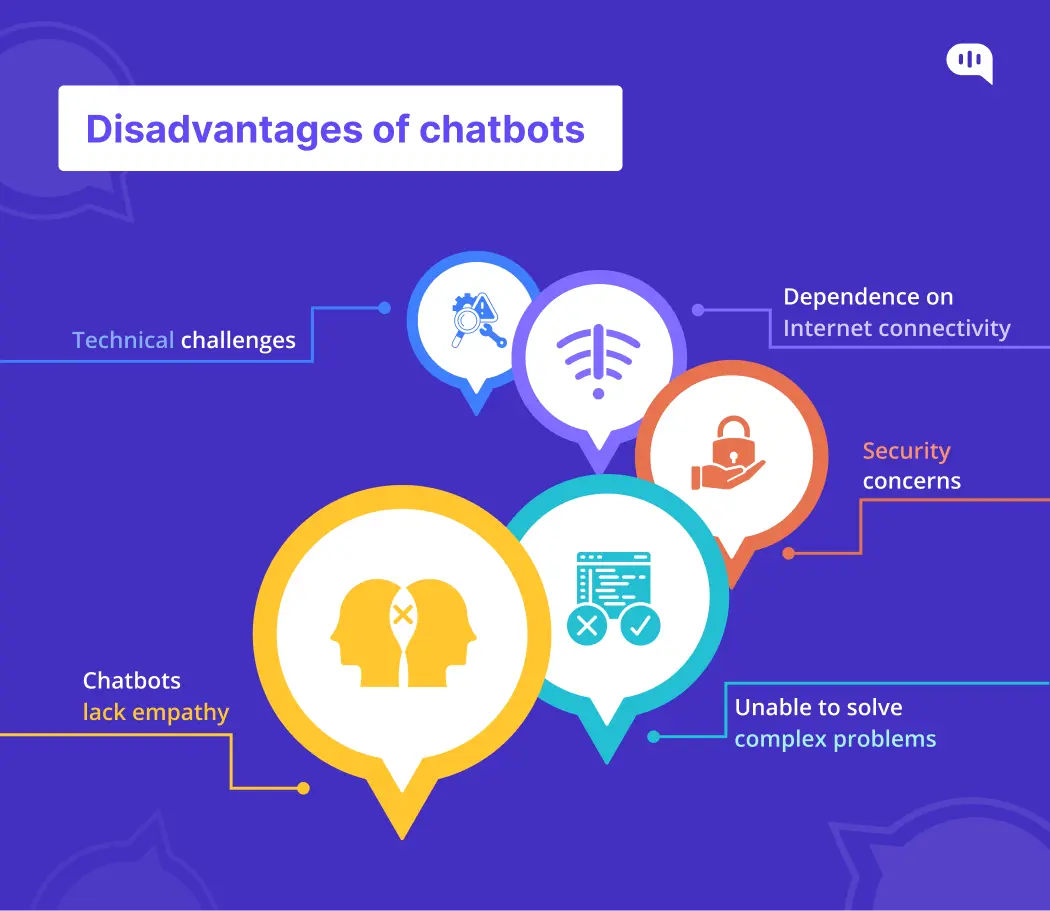
1. Technical challenges
Even though you don’t need to be a high-end developer to build a chatbot these days, building and deploying a chatbot does involve a bit of initial technical expertise. If you do have a bit of a background in coding, it will help when you need to troubleshoot issues, or when you need to speak to your vendor. Not all businesses will have the kind of resources or technical expertise to deploy chatbots.
2. Dependence on Internet connectivity
Chatbots need to be connected to the internet, always, to function smoothly. While a customer support agent can still take a call when the Wi-fi is down, the same may not hold for a chatbot. This over-dependence on connectivity can backfire, especially in areas prone to frequent internet outages. When users face service disruptions, it will lead to a poor customer experience.
3. Security concerns
One of the biggest advantages of chatbots for customers, data security, is also a challenge that is sensitive during implementation. Chatbots dealing with sensitive data raise privacy concerns, and a data breach can have severe consequences.
4. Chatbots lack empathy
There has been a significant improvement in the ability of chatbots to be empathetic or understand the context of a conversation after the introduction of LLMs like ChatGPT. However, chatbots still lack true empathy and they cannot understand the emotional tone behind a particular request. This is one field where human agents score above chatbots.
5. Unable to solve complex problems
Chatbots follow a predefined script, and, at the end of the day, are just advanced computer programs. Chatbots often fail to understand nuanced conversations and fail to pick up on sarcasm. We are getting there, yes, but at this point, if I had a complex problem with a product, I would much rather talk to a customer support agent rather than be redirected to a “Sorry I don’t understand” message.

Frequently Asked Question
1. Are chatbots only suitable for large enterprises?
Answer: Chatbots are adaptable and scalable, making them suitable for businesses of all sizes. All enterprises can leverage chatbots to enhance customer interactions without the need for a large support team.
2. Can chatbots replace human customer support entirely?
Answer: While chatbots can handle daily queries and provide instant responses, they may not replace human support entirely. The ideal approach is a harmonious collaboration between chatbots and humans, ensuring a personalized and efficient customer experience.
3. How secure is the data handled by chatbots?
Answer: Security is a top priority for chatbot developers. They adhere to strict data protection protocols and encryption standards, ensuring that customer data remains secure and confidential.
4. Do customers prefer interacting with chatbots over humans?
Answer: Customer preferences vary, but many appreciate the speed and efficiency of chatbots for general inquiries. However, there will always be scenarios where human interaction is preferred, especially for complex issues that require empathy and understanding.
5. How can businesses ensure a seamless integration of chatbots?
Answer: Successful integration involves careful planning, understanding customer needs, and refining the chatbot’s capabilities over time. Businesses should prioritize user-friendly interfaces and regularly update the chatbot’s knowledge base to provide accurate and relevant information.
Start with an AI Chatbot
All said and done, a chatbot is an invaluable asset to your website, no matter how difficult it is to implement or how technically challenging. With low code no code platforms, you can be up and running with a chatbot in less than 10 minutes.
Build a bot, integrate it into your website or your CMS, and watch your business operations get streamlined.
At Kommunicate, we are envisioning a world-beating customer support solution to empower the new era of customer support. We would love to have you on board to have a first-hand experience of Kommunicate. You can signup here and start delighting your customers right away.

